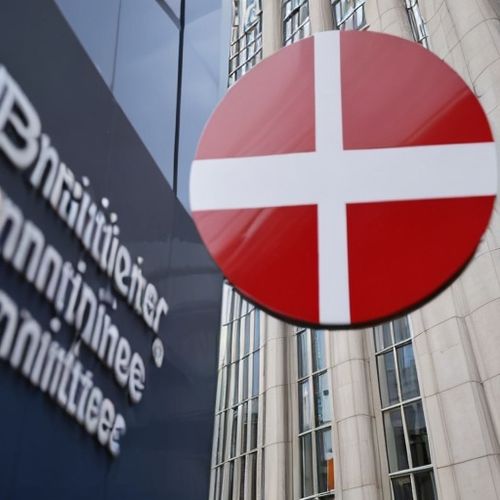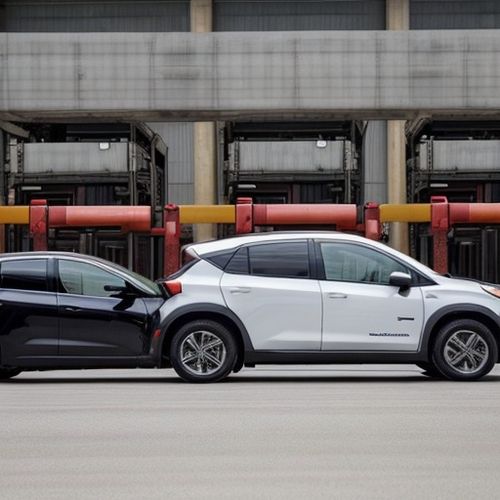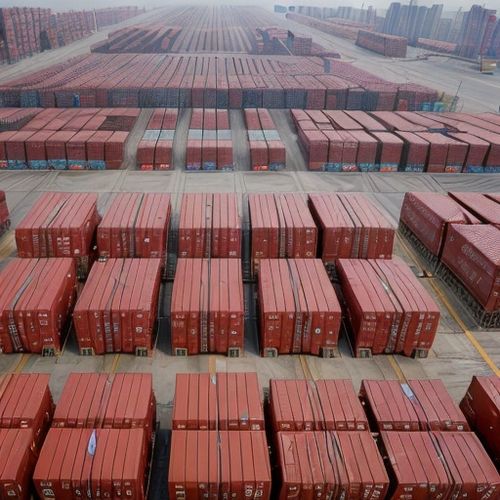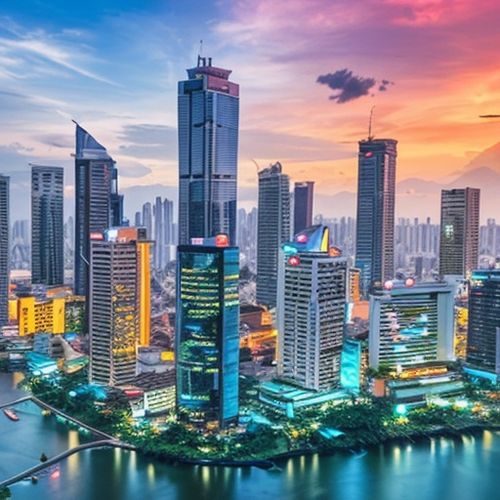Germany, long hailed as a powerhouse of European industry, is currently facing a significant challenge in its transition towards a more sustainable and green economy. The country's industrial sector, which has been a cornerstone of its economic success, is grappling with the complexities of this transformation, highlighting the urgent need for increased investment in clean energy.
Economic Shifts and Environmental Concerns
Germany's industrial base has been traditionally reliant on heavy industries such as automotive manufacturing and chemical production. These sectors have been the backbone of the country's export-driven economy. However, with the global push towards reducing carbon emissions and combating climate change, Germany is under increasing pressure to pivot towards cleaner, more sustainable practices. This shift is not only an environmental imperative but also a strategic economic move, as the world moves towards green technologies and renewable energy sources.
The Struggle with Energy Transition
The energy transition, or Energiewende, has been a central policy in Germany for decades. It aims to reduce the country's reliance on fossil fuels and nuclear power, transitioning instead to renewable energy sources such as wind, solar, and hydroelectric power. Despite significant strides in renewable energy production, the process has been slower and more complex than initially anticipated. The closure of nuclear power plants and the phasing out of coal have created energy supply gaps that have been difficult to fill with renewable energy alone, leading to a reliance on natural gas imports, primarily from Russia.
Investment in Clean Energy: A Necessity
The urgency for clean energy investment in Germany is twofold. Firstly, it is a response to the global climate crisis, which requires a rapid decarbonization of the economy. Secondly, it is a strategic move to maintain Germany's competitive edge in a world that is increasingly valuing sustainability and green technologies. The country's industrial sector, which accounts for a significant portion of its greenhouse gas emissions, must be modernized to operate within the constraints of a low-carbon economy.
The Role of Government and Private Sector
The German government has been actively promoting clean energy through various policies and incentives. However, the scale of the challenge requires a concerted effort from both the public and private sectors. Private investment is crucial for the development and deployment of new technologies, as well as for the expansion of existing clean energy infrastructure. The government's role is to create a favorable environment for such investments, through stable policies, financial incentives, and a clear long-term vision for the country's energy future.
Technological Innovations and Industrial Modernization
Germany's industrial sector is not only about reducing emissions; it's also about embracing technological innovations that can drive efficiency and competitiveness. The country has a strong tradition of engineering excellence and manufacturing prowess, which can be leveraged in the development of new clean technologies. From electric vehicles to energy storage solutions, there are numerous opportunities for German companies to lead in the global market for green products and services.
The Impact on Jobs and the Economy
The transition to a green economy is not without its challenges, particularly in terms of job displacement in traditional industries. However, the move towards clean energy also presents significant job creation opportunities. The installation and maintenance of renewable energy infrastructure, as well as the manufacturing of related components, can provide new employment avenues. It is essential for the government to support workforce retraining and education programs to ensure a smooth transition for those affected by the changes in the industrial landscape.
International Cooperation and Trade
Germany's industrial transformation is not an isolated endeavor. It is part of a global effort to combat climate change and transition to a sustainable economy. International cooperation is vital for sharing best practices, technology transfer, and the establishment of global standards for clean energy. Trade agreements that promote the exchange of green technologies and products can also play a significant role in accelerating the transition.
The Path Forward
As Germany continues to navigate the complexities of its industrial transformation, it is clear that the path forward is not without obstacles. However, with a strong commitment to clean energy investment, a focus on technological innovation, and a collaborative approach to international cooperation, the country can successfully transition to a more sustainable and green economy. The urgency of this transition is not just an environmental imperative but also a strategic necessity for Germany's continued economic prosperity and global leadership.

By Sophia Lewis/Apr 6, 2025

By Thomas Roberts/Apr 5, 2025

By Emma Thompson/Apr 5, 2025

By Sarah Davis/Apr 5, 2025

By John Smith/Apr 5, 2025

By Laura Wilson/Apr 5, 2025

By Christopher Harris/Apr 5, 2025

By Emma Thompson/Apr 5, 2025

By David Anderson/Apr 5, 2025

By James Moore/Apr 5, 2025

By James Moore/Apr 5, 2025

By Natalie Campbell/Apr 5, 2025

By David Anderson/Apr 5, 2025

By Grace Cox/Apr 5, 2025

By Thomas Roberts/Apr 5, 2025

By Christopher Harris/Apr 5, 2025

By Michael Brown/Apr 5, 2025